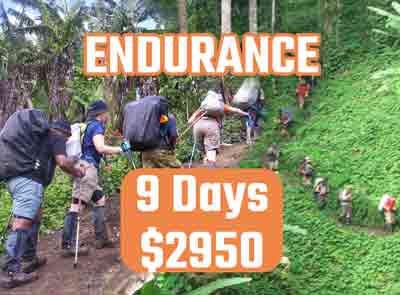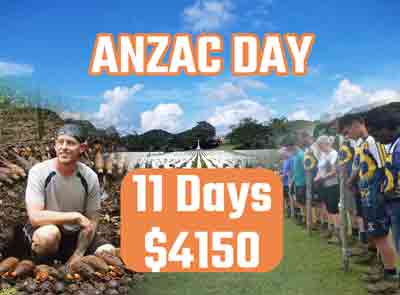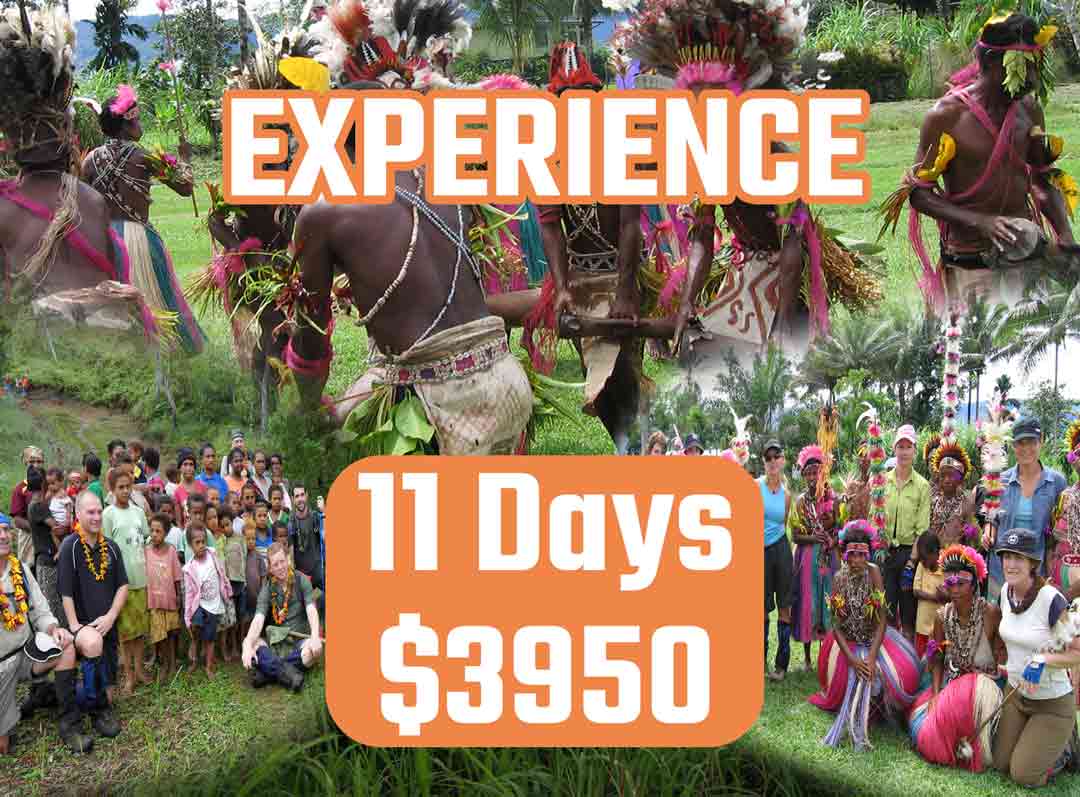Trek Health Screening | for Trekkers on the Kokoda Track
Introduction
Embarking on the Kokoda Trail is a journey that promises adventure, historical immersion, and a test of physical endurance. As an Australian-based trekking business with a rich history of guiding enthusiasts through over 100 expeditions along the Kokoda Trail in Papua New Guinea, we understand the significance of proper health screening. This article serves as a comprehensive guide for potential trekkers, ensuring a safe and enjoyable experience along this iconic trail.
Preparing for the Trek Along the Kokoda Trail
1. Physical Fitness Assessment
Before booking your trek along the Kokoda Trail, it is highly recommended to undergo a thorough physical fitness assessment. The Kokoda Track is known for its challenging terrain, steep ascents and descents, and unpredictable weather conditions. A trekker should be physically prepared to endure the strenuous walk across the Owen Stanley Range.
2. Training Program
Enroll in a dedicated training program that focuses on building stamina, strength, and endurance. Training should include long hikes, elevation gains, and practice sessions carrying a loaded backpack, simulating the conditions of the Kokoda Trail.
3. Medical Check-Up
Consult with a healthcare professional for a comprehensive medical check-up. Discuss your trekking plans and ensure that you are in good health to undertake the physical demands of the expedition. This step is crucial in identifying any pre-existing conditions that may affect your ability to complete the trek.
Packing Essentials for the Trekker
4. Backpack and Day Pack
Invest in a sturdy and waterproof backpack that can withstand the challenging conditions along the Kokoda Trail. A day pack is essential for carrying items needed during the day, such as water, snacks, and personal essentials.
5. Sleeping Bag and Gear
Pack a reliable sleeping bag suitable for varying temperatures, as nights along the trail can get cold. Ensure you have appropriate trekking gear, including comfortable shoes and socks for the long and demanding days.
6. First Aid Kit
Prepare a comprehensive first aid kit that includes essential medical supplies. Given the remote nature of the trail, having the ability to address minor injuries or ailments is crucial. Knowledge of basic first aid is highly recommended.
Safety Measures Along the Trail – Not Just About Kokoda History
7. Local Guides and Porters
Engage with local guides and porters who have a deep knowledge of the Kokoda Trail. Their expertise ensures not only a safer journey but also provides an opportunity to immerse yourself in the rich history of the trail and its significance in the Kokoda campaign.
8. Emergency Evacuation
Be aware of emergency evacuation procedures. Carry a satellite phone for communication in case of emergencies. The local guide and expedition leader will always prioritize the safety of the trekking group and initiate evacuation if necessary.
9. Weather Preparedness
Given the unpredictable weather patterns, be prepared for heavy rain and hot, humid conditions. Ensure your gear, especially your backpack, is waterproof, and dress appropriately to protect yourself from the elements.
Booking and Preparation
10. Booking Process
Complete the booking form accurately, providing all necessary information. Ensure that you have travel and medical insurance, including coverage for emergency evacuation from the Kokoda Trail.
11. Time in Papua New Guinea
Allow time to acclimatize to the local conditions upon arriving in Papua New Guinea. This adjustment period is essential for your well-being during the trek.
12. Respect for Local Communities
Show respect to the local villagers and communities along the track. Understand and adhere to local customs, and be mindful of your impact on the environment.
Conclusion
Trekking the Kokoda Trail is not just a physical challenge but a profound historical and cultural experience. Prioritizing your health, proper preparation, and adherence to safety guidelines are essential for a successful journey. Walk in the footsteps of history with passion, respect, and a commitment to the well-being of both yourself and the communities along the Kokoda Trail.
Q: What is the significance of the Kokoda Track?
A: The Kokoda Track holds historical significance as it was the site of a significant battle during World War II between Australian and Japanese forces. Today, it is a popular trekking destination that attracts adventurers from around the world.
Q: What should I expect during a trek along the Kokoda Track?
A: Trekking along the Kokoda Track involves navigating challenging terrain, enduring hot and humid weather conditions, and gaining insight into the history of the track and the surrounding areas.
Q: How can I prepare for a trek on the Kokoda Track?
A: It is essential to undergo thorough health screening and physical fitness assessments before embarking on a Kokoda Track trek. This may involve consulting with medical professionals and ensuring that you are physically and mentally prepared for the trek.
Q: Are there specific health risks to consider while trekking the Kokoda Track?
A: Yes, there are potential health risks such as exposure to mosquito-borne illnesses, dehydration, and heat-related conditions due to the hot and humid climate of the region.
Q: What measures are in place for medical evacuation if needed during a Kokoda Track trek?
A: Trekking companies often have evacuation plans in place for medical emergencies, including access to medical personnel and evacuation routes in case of serious health issues.
Q: What should I bring for a trek along the Kokoda Track?
A: It is important to pack appropriate gear, including sturdy trekking shoes, insect repellent, sunscreen, and sufficient water to stay hydrated throughout the journey.
Q: How can I learn more about the history of the Kokoda Campaign while trekking the track?
A: Trek leaders and guides typically provide valuable insights into the historical significance of the Kokoda Track, offering a comprehensive understanding of the area’s wartime and cultural heritage.
Q: What should I do if I encounter challenges or health issues while trekking the Kokoda Track?
A: If faced with difficulties or health concerns, it is crucial to communicate with the trek leader and follow their guidance. Trekking companies have protocols in place to ensure the safety and well-being of trekkers.
Q: How can I contribute to the preservation of the environment and local communities along the Kokoda Track?
A: Trekkers should be mindful of their impact on the environment and communities along the track, aiming to leave minimal trace, respecting local customs, and supporting sustainable tourism practices.
Q: What are some essential factors to ensure a safe and fulfilling Kokoda Track trekking experience?
A: Prioritizing physical fitness, knowledge of the area’s history, adherence to safety protocols, and respect for the environment and local communities are crucial for a safe and rewarding Kokoda Track trekking experience.




